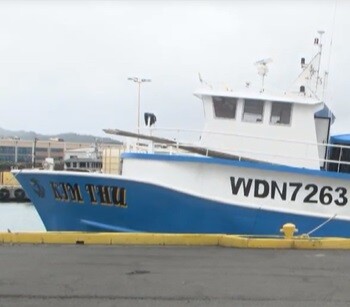The U.S. Coast Guard released a safety alert following a marine diesel fuel tank explosion on an uninspected commercial fishing boat in Hawaii on April 26. The explosion happened while the vessel Kim Thu was moored at Pier 36 for maintenance, leaving one dead and five injured. Recent statements from the Coast Guard shared an update on the explosion. The Department of Law Enforcement shared that the Kim Thu was a foreign long-line fishing vessel.
According to Safety 4 Sea, preliminary findings revealed that the vessel did not adhere to the “Hot Works” permit guidelines issued by the State Department of Transportation, which authorizes work on water tank hatches, engine room stairs, and spotlights. Witnesses had confirmed welding was performed on a fuel tank vent pipe that was neither certified gas-free nor “Safe for Hot Work” by a certified marine chemist, as required by the permit. The total amount of damage was around $250,000.
The Coast Guard revealed that diesel fuel vapors ignited, causing the explosion. Honolulu EMS director Jim Ireland told Honolulu News Now following the incident that two men were left with critical injuries and one man with serious injuries was taken to Queen’s Medical Center, while two other men with serious injuries were taken to the Straub Medical Center.
“These kinds of incidents, when the injuries are so severe, we like to overwhelm the scene with paramedics so they can provide individualized life-saving care to all the patients. Because of the inundation of five very, very sick patients, all five needed advanced life support from our paramedics.” Ireland shared after the explosion. At the time, the cause of the fire was still under investigation, but the boat’s owner claimed that the cause of the fire was a gas tank. He also claimed it was empty and was confused about why it exploded.
The Coast Guard ended their statement with, “Uninspected commercial fishing vessels (CFV) regulated under 46 Code of Federal Regulations Subchapter C, are subject to limited oversight by the U.S. Coast Guard or recognized class societies. Therefore, CFV owners and operators play a critical role in ensuring that safe marine practices are adhered to during repairs.”







